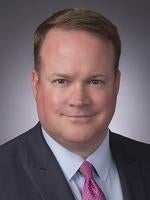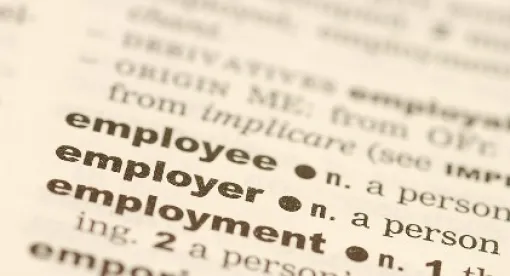The National Labor Relations Board (the “NLRB” or “Board”) seemingly took very little time off during the holidays and in the last few weeks announced that it is seeking public input on whether to reconsider two significant standards. First, on December 27, 2021, the NLRB issued a notice inviting parties to submit briefs on whether it should reconsider its standard for determining independent contractor status. Second, on January 6, 2022, the Board invited parties to file briefs on whether it should continue to adhere to the standard established for determining whether a facially neutral work rule violates Section 8(a)(1) of the National Labor Relations Act (“NLRA” or the “Act”). These invitations come hot on the heels of the Board’s December 7th invitation for briefing on its standard for determining appropriate bargaining units.
SuperShuttle DFW, Inc. and the Independent Contractor Standard
Independent contractors are exempt from coverage under the NLRA, and therefore these workers do not enjoy the rights and protections afforded by the Act. Whether a particular employee or group of employees is classified as an independent contractor is of paramount importance to any employer contemplating utilizing these workers. Due to the rise of the gig economy and other factors that have disrupted the traditional employer-employee relationship, the Board has grappled with the proper standard for determining worker classification over the last decade. Historically, the NLRB used the traditional common law agency test to determine whether an individual is an employee or an independent contractor. The common law test looked to a non-exhaustive list of ten non-determinative factors including:
(a) The extent of control which, by the agreement, the master may exercise over the details of the work;
(b) Whether or not the one employed is engaged in a distinct occupation or business;
(c) The kind of occupation, with reference to whether, in the locality, the work is usually done under the direction of the employer or by a specialist without supervision;
(d) The skill required in the particular occupation;
(e) Whether the employer or the workman supplies the instrumentalities, tools, and the place of work for the person doing the work;
(f) The length of time for which the person is employed;
(g) The method of payment, whether by the time or by the job;
(h) Whether or not the work is part of the regular business of the employer;
(i) Whether or not the parties believe they are creating the relation of master and servant; and
(j) Whether the principal is or is not in business.
In 2014 the Board announced a new standard for determining worker classification described as a “refinement” to the traditional common law test. In FedEx Home Delivery, 361 NLRB 610 (2014) (“FedEx”) the Board effectively created a new factor to the independent contractor analysis — whether the evidence tends to show that the putative contractor is, in fact, rendering services as part of an independent business — and held that only actual entrepreneurial opportunities weigh in factor of finding independent contractor status, thereby significantly limiting the potential pool of independent contractors.
Then, under President Trump, the Board retuned to its longstanding use of the traditional common law test and rescinded the prior Board’s “refinement” as set forth in FedEx. In SuperShuttle DFW, Inc., 367 NLRB No. 75 (2019) (“SuperShuttle”), the NLRB reversed FedEx and concluded the test articulated in that case erroneously diminished essential factors of the common law test and noted that it did so without notice or comment.
Now, the Biden Board is considering whether to adhere to the standard established in SuperShuttle, return to the standard established in FedEx, or to replace the standard altogether with a different test. Currently, interested parties are required to file briefs with the Board by February 10, 2022 (with responsive briefs due on or before February 25, 2022).
The Boeing Company and Facially Neutral Work Rules
Similarly, the Board’s standard for assessing the lawfulness of facially neutral work rules, such as those contained in employee handbooks, has seen significant change, especially during the prior two Administrations. As we have previously discussed, in 2004, the Board issued Lutheran Heritage Village-Livonia, 343 NLRB 646, and held that the mere maintenance of a neutral work rule violated Section 8(a)(1) of the National Labor Relations Act (NLRA) if employees would reasonably construe the rule to prohibit union and other protected concerted activity (Section 7 conduct). For the purposes of this analysis, a neutral work rule is one that does not explicitly reference or restrict Section 7 conduct. In the ensuing years, primarily during the Obama Administration, the Board relied on the Lutheran Heritage “reasonably construe” standard to invalidate countless neutral work rules to the point that practically every employer in America was placed at risk of being found to be in violation of the NLRA by virtue of the wording found in their employment agreements, employee handbooks and work rules. In The Boeing Company, 365 NLRB No. 154 (2017) (“Boeing”), the NLRB revised the standard applied for determining the validity of neutral work rules to a balancing test between the particular rule’s negative impact on employee’s ability to exercise their rights under the NLRA and the rule’s connection to an employer’s right to maintain discipline and productivity in the workplace. The Board later clarified that work rules challenged in the future would be divided into three separate categories — 1) rules that the Board designates as lawful to maintain; 2) rules that warrant individualized scrutiny; and 3) rules that the Board designates as unlawful to maintain — in LA Specialty Produce Co., 368 NLRB No. 93 (2019) (“LA Specialty Produce”).
Now the Board is considering whether to (once again) revisit the standard applicable to workplace rules. Specifically, the NLRB has invited briefing on the following questions:
-
Should the Board continue to adhere to the standard adopted in Boeing and revised in LA Specialty Produce Co.?
-
In what respects, if any, should the Board modify existing law addressing the maintenance of employer work rules to better ensure that:
(a) the Board interprets work rules in a way that accounts for the economic dependence of employees on their employers and the related potential for a work rule to chill the exercise of Section 7 rights by employees;
(b) the Board properly allocates the burden of proof in cases challenging an employer’s maintenance of a work rule under Section 8(a)(1); and
(c) the Board appropriately balances employees’ rights under Section 7 and employers’ legitimate business interests?
-
Should the Board continue to hold that certain categories of work rules —such as investigative-confidentiality rules as addressed in Apogee Retail LLC d/b/a Unique Thrift Store, 368 NLRB No. 144, (2019), non-disparagement rules as addressed in Motor City Pawn Brokers, 369 NLRB No. 132 (2020), and rules prohibiting outside employment as addressed in Nicholson Terminal & Dock Co., 369 NLRB No. 147 (2020), and G&E Real Estate Management Services d/b/a Newmark Grubb Knight Frank, 369 NLRB No. 121 (2020)— are always lawful to maintain?
Briefs may be filed with the Board on or before March 7, 2022, with responsive briefing due on or before March 22, 2022.
Key Takeaways
At this point employers are likely experiencing whiplash from the about-face in legal standards from the previous administration. While we do not know for sure whether the Board will stick to its traditional standards, revert to the standards either established (or further advanced) under the Obama Administration, or develop their own novel approach to determining these issues, a safe bet is to anticipate a version back to the views espoused by the Obama-era Board. Accordingly, employers should anticipate the aforementioned standards will be considerably less employer-friendly, and should at a minimum proceed with caution when crafting strategies based on Trump-era rulings.
Developments at the NLRB are likely to continue at a rapid pace, we will monitor developments in this area and provide updates when relevant.
Myles Moran, a law clerk in the firm’s New York office, also contributed to this article.




 />i
/>i

